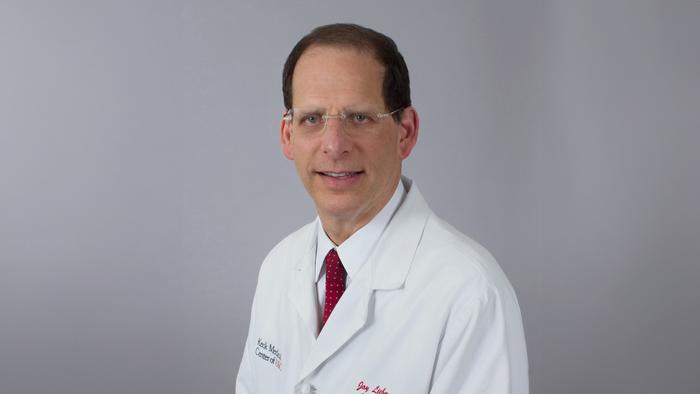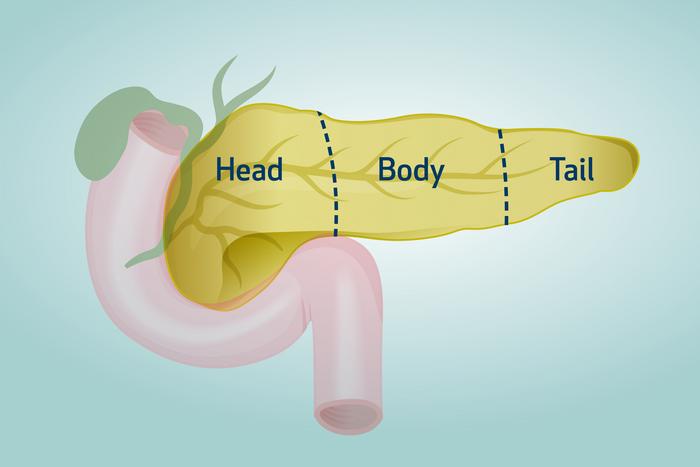Keck School of Medicine of USC orthopaedic surgery chair elected as 2024 AAAS fellow
The American Association for the Advancement of Science (AAAS) has elected surgeon-researcher Jay Lieberman, MD, chair and professor of orthopaedic surgery at the Keck School of Medicine of USC, among its class of 2024 fellows. Credit: Photo/Ricardo Carrasco III The American Association for the Advancement of Science (AAAS) has elected surgeon-researcher Jay Lieberman, MD, chair and […]

The American Association for the Advancement of Science (AAAS) has elected surgeon-researcher Jay Lieberman, MD, chair and professor of orthopaedic surgery at the Keck School of Medicine of USC, among its class of 2024 fellows.

Credit: Photo/Ricardo Carrasco III
The American Association for the Advancement of Science (AAAS) has elected surgeon-researcher Jay Lieberman, MD, chair and professor of orthopaedic surgery at the Keck School of Medicine of USC, among its class of 2024 fellows.
The AAAS is the world’s oldest and largest general science organization and the publisher of Science, a top peer-reviewed academic journal. Election as a fellow is a lifetime honor — and one of the AAAS’s highest — signaling extraordinary achievement in the advancement or application of science.
Lieberman is being honored for “distinguished contributions to the field of orthopaedic surgery, particularly for the pioneering work in developing regional gene therapy and improving outcomes after total joint replacement.”
He has published more than 300 biomedical manuscripts, book chapters and reviews, and served as principal investigator for several major grants from the National Institutes of Health. Beyond his scientific impact, he is internationally recognized as a surgeon with expertise in primary and revision total hip and knee replacement and in treating osteonecrosis, or bone death, of the hip and knee.
“Many people who go into academic medicine are naturally curious,” said Lieberman, who is also chief of the orthopaedic surgery service at Keck Medical Center of USC. “Asking questions, rather than just accepting what others are doing, makes you a better surgeon. Total joint replacement is extremely rewarding because you treat patients that are disabled and you can restore their quality of life. But it’s also rewarding to do research that enhances care not only for your patients, but for patients everywhere.”
For over 20 years, he has led breakthrough investigations aiming to apply gene therapy using genetically manipulated stem cells to treat extensive bone injuries. The strategy aims to stimulate stem cells either in the fat or marrow to produce large quantities of a protein that in turn causes stem cells to induce bone forming cells. The team has optimized the means for altering cells and delivering the therapy, which has shown success in proof-of-concept lab studies.
Lieberman and his colleagues are currently conducting further research necessary to push the therapy, which would alter patients’ own cells, forward to clinical trials. In parallel, the investigators are also exploring the potential for an off-the-shelf treatment not requiring cells to be harvested from patients.
“We feel very optimistic that our gene therapy could be used for a complex, elective procedure such as treating fractures that fail to heal, revision total joint replacement or failed spine fusion,” Lieberman said. “Safety is the number one thing. We’re looking at safety and efficacy in preclinical models, and the data look really good.”
In another line of research, he aims to ensure that patients thrive after joint replacement surgery. This endeavor began with surveys of patients homing in on the factors that influence their satisfaction with their knee or hip replacements. In recent years, Lieberman has collaborated with his colleagues in the Department of Orthopaedic Surgery to tap larger databases — ranging in size from 250,000 patients to more than a million — for factors that mitigate complications and improve outcomes. They have found, for instance, that managing patients’ blood sugar on the day of surgery can reduce the risk of infection after total hip arthroplasty.
“One of the important aspects of our department’s culture is that we want to do everything possible to enhance outcomes for patients,” Lieberman said.
He is the past president of the American Association of Hip and Knee Surgeons and the Hip Society, and a member of the Knee Society and the International Hip Society. He has been recognized multiple times on lists of America’s Top Doctors by Castle Connolly, Southern California Super Doctors by Los Angeles Magazine and Top Doctors by Pasadena Magazine. He has co-edited three books for the American Academy of Orthopaedic Surgeons (AAOS) on arthroscopic surgical techniques for the hip and knee, as well as two editions of the authoritative textbook Surgery of the Hip.
Lieberman has won numerous awards including the Frank Stinchfield Hip Society Award, the Orthopaedic Research Society’s Marshall Urist Award and the prestigious AAOS Elizabeth Winston Lanier Kappa Delta Award. He earned his medical degree from the Albany Medical College of Union University and completed his fellowship training in total joint replacement at the Hospital for Special Surgery in New York.
Learn more about research at the Keck School of Medicine of USC.
What's Your Reaction?

































